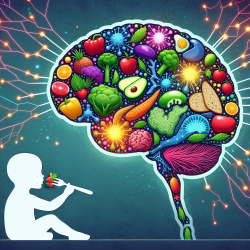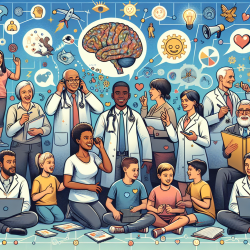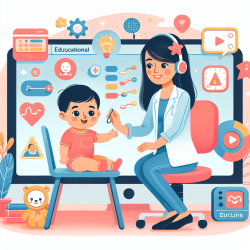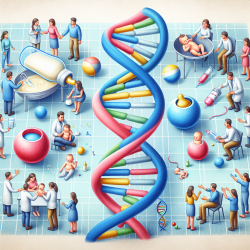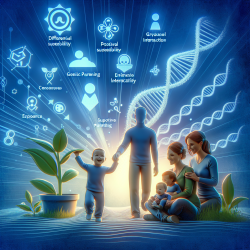Introduction
In the realm of child development, nutrition plays a pivotal role, especially during the early stages of life. The research article "Neuroimaging, a new tool for investigating the effects of early diet on cognitive and brain development" by Elizabeth B. Isaacs offers groundbreaking insights into how early dietary choices can influence cognitive outcomes and brain structure. As practitioners focused on creating optimal outcomes for children, understanding these effects can enhance our approaches and interventions.
The Role of Nutrition in Brain Development
Nutrition is a critical factor in the initial development and maintenance of the central nervous system (CNS). Early life nutrition is often seen as a "programming" stimulus, capable of having long-lasting effects on brain structure and function. Initial studies were observational, often confounded by external factors. However, with the advent of randomized controlled trials (RCTs) and neuroimaging, we now have the tools to explore these effects in humans more accurately.
Neuroimaging: A Window into the Brain
Neuroimaging techniques, such as MRI and fMRI, have revolutionized our understanding of the brain's response to early nutrition. These tools allow us to observe structural and functional changes in the brain, offering insights into how specific nutrients affect neural development. For instance, structural MRI can reveal differences in brain volume and cortical thickness, while fMRI can show changes in brain activity related to cognitive tasks.
Implications for Practitioners
For practitioners, integrating findings from neuroimaging studies into therapy can lead to more informed, data-driven decisions. By understanding the specific nutrients that impact brain development, practitioners can tailor dietary recommendations and interventions to support optimal cognitive outcomes. This approach not only enhances individual therapy plans but also contributes to broader public health strategies aimed at improving childhood nutrition.
Encouraging Further Research
While the existing literature provides a solid foundation, there is a need for continued research to refine our understanding of the relationship between early diet and brain development. Practitioners are encouraged to stay informed about new studies and consider participating in research initiatives. This proactive approach ensures that therapy practices remain aligned with the latest scientific insights.
Conclusion
Neuroimaging has opened new avenues for understanding how early diet affects brain development and cognition. By leveraging these insights, practitioners can enhance their therapeutic approaches, ultimately leading to better outcomes for children. To delve deeper into the original research, please follow this link: Neuroimaging, a new tool for investigating the effects of early diet on cognitive and brain development.
